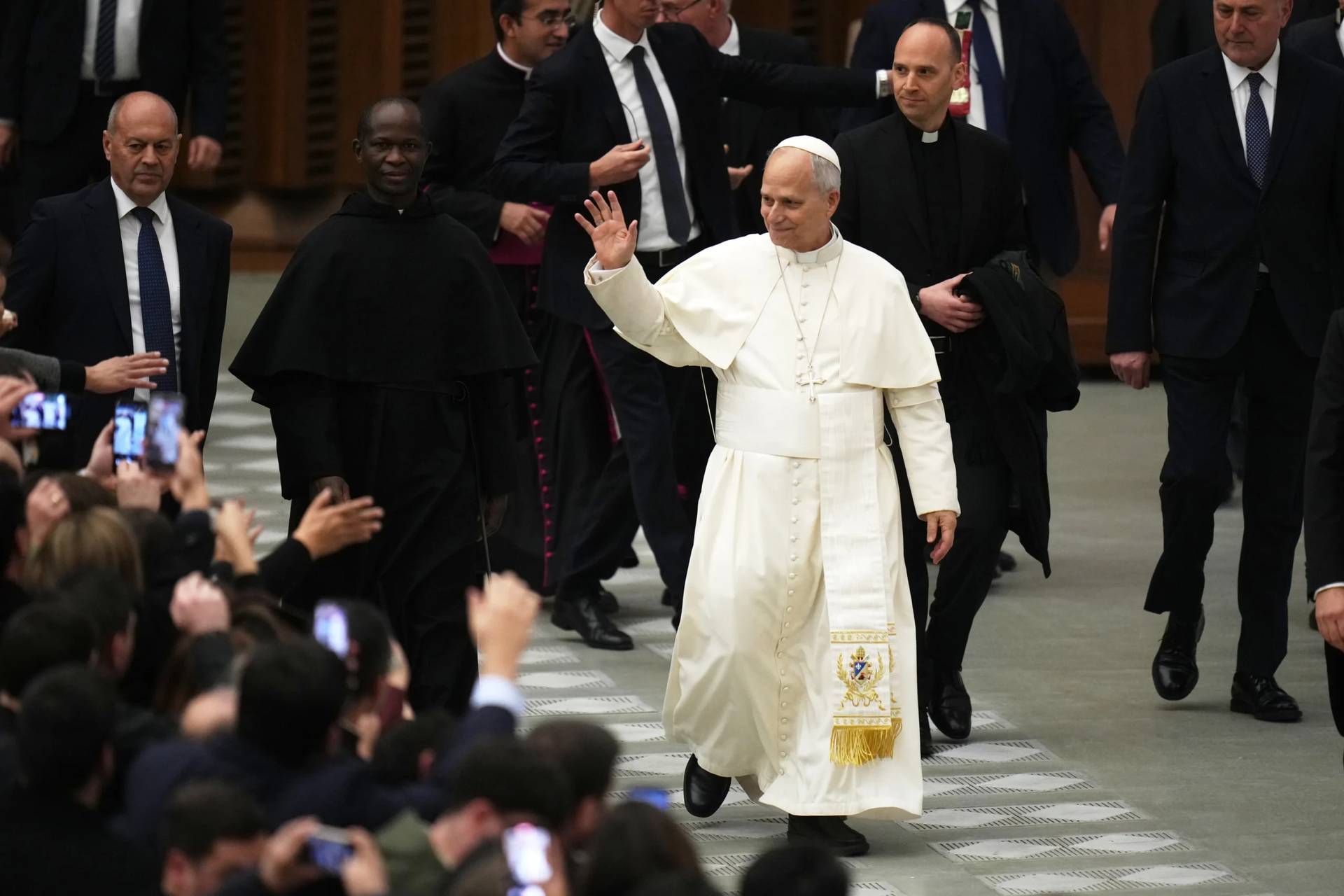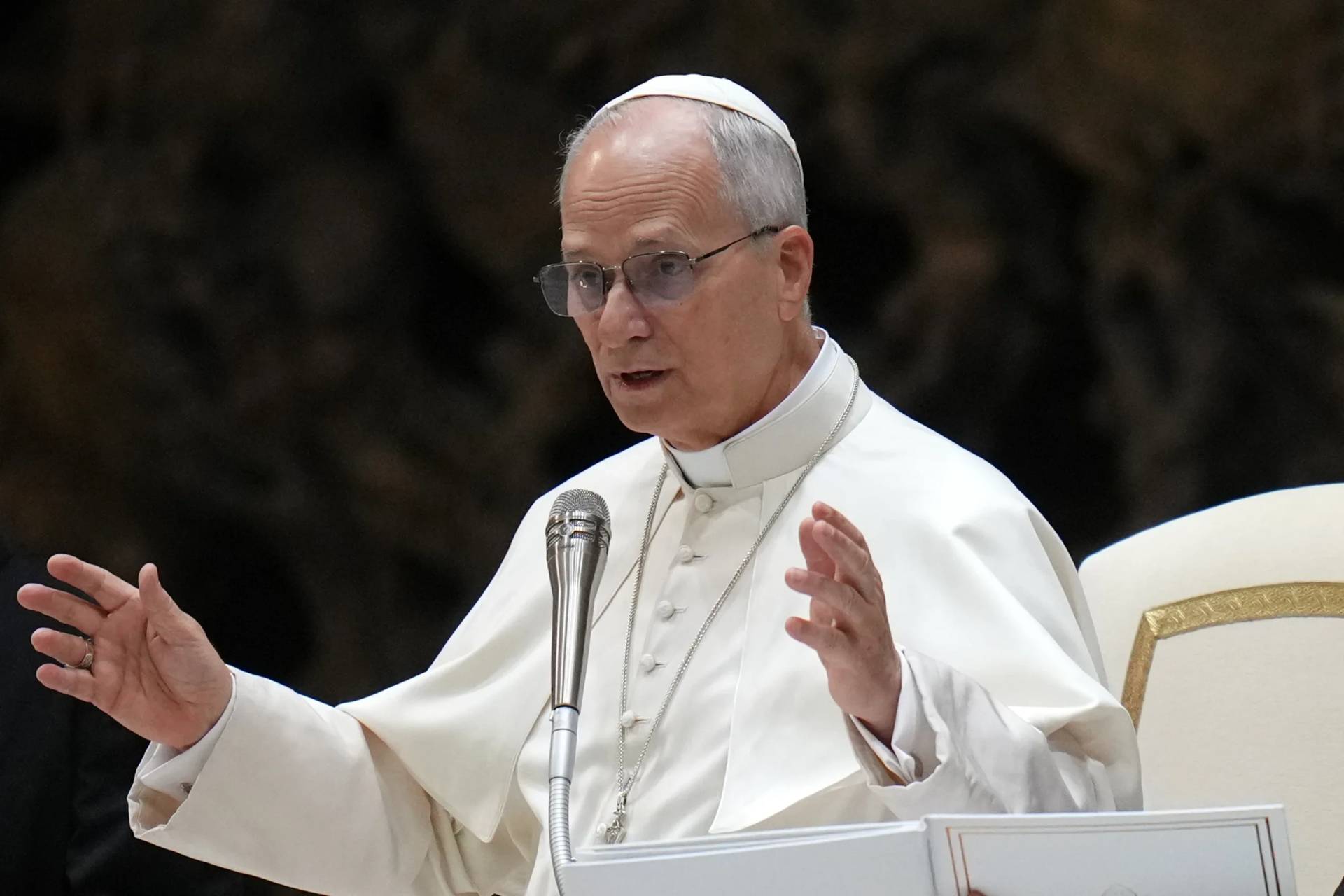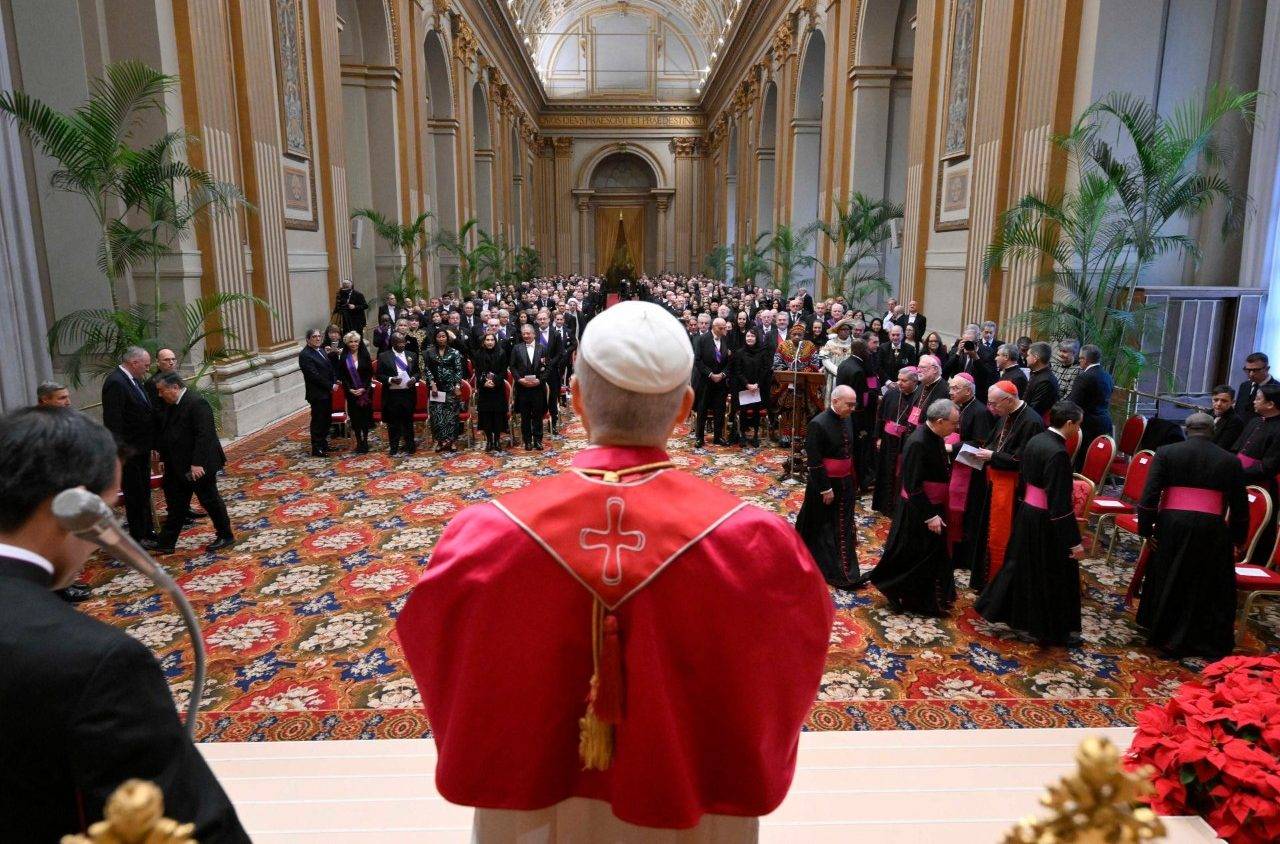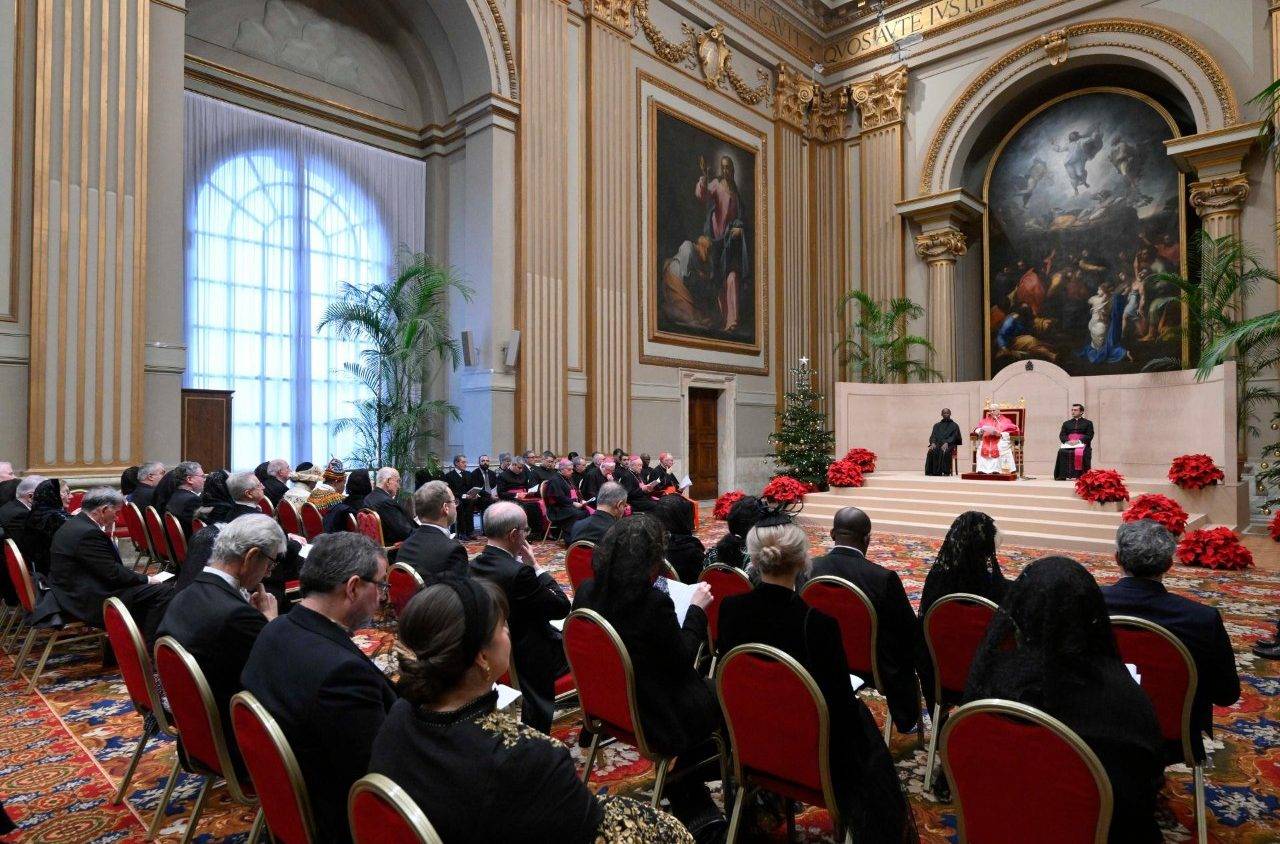ROME — Just as God used the talents and the shortcomings of St. Paul to spread the Gospel, he uses the talents and shortcomings of those called to be bishops today, said Archbishop Dennis M. Schnurr of Cincinnati.
“We do not have to be perfect for God to work through us. God can work through us, faults and all, as he did with St. Paul,” Schnurr said as he preached in the basilica built over the tomb of the apostle.
The bishops of Ohio and Michigan celebrated Mass at the Basilica of St. Paul Outside the Walls Dec. 11, ending with a procession to the tomb of St. Paul where they recited the Our Father, the Hail Mary and also prayed in silence.
Schnurr was the principal celebrant and homilist at the Mass, which was part of the bishops’ visit ad limina apostolorum — to the threshold of the apostles.
In his homily, the archbishop noted how St. Paul, in the Second Letter to the Corinthians, lists the trials and tribulations he has faced in preaching the Gospel: lashings, beatings, imprisonment, being shipwrecked, enduring hunger, thirst and cold.
“Paul did not complain about these hardships,” the archbishop said. “On the contrary, he boasted in them, for in Christ he found ‘the yoke easy and the burden light,'” as the day’s Gospel reading promises Jesus’ followers.
St. Paul was not one of the 12 Apostles and, in fact, he initially persecuted Christians, but was converted to Christ and became one of the leaders of the Christian community, evangelizing far and wide.
“Paul was a controversial character in his own way; he had a fiery temper and personality. In his early life, he channeled that fire toward the persecution of Christians in Jerusalem,” the archbishop noted. After his conversion, his fiery preaching “upset the churches” to the point that the Acts of the Apostles notes how, when he left and returned to Tarsus, “the churches throughout Galilee and Samaria were left in peace.”
But God chose the hot-tempered, highly educated Pharisee to help Jews and Gentiles alike see that “Jesus is the savior of all peoples,” Schnurr said.
“As we look at Paul, we see that God called him to use his personality to spread the Gospel. Paul used his training as a Pharisee and his strength of character to ensure that both Jews and Gentiles would be welcomed into the Church,” he said.
“In our own challenging and trying times,” the archbishop told his fellow bishops, “Paul is a reminder to us that, if we allow it, our talents as well as our weaknesses and shortcomings can become God’s means of ministering to his people.”
Crux is dedicated to smart, wired and independent reporting on the Vatican and worldwide Catholic Church. That kind of reporting doesn’t come cheap, and we need your support. You can help Crux by giving a small amount monthly, or with a onetime gift. Please remember, Crux is a for-profit organization, so contributions are not tax-deductible.













